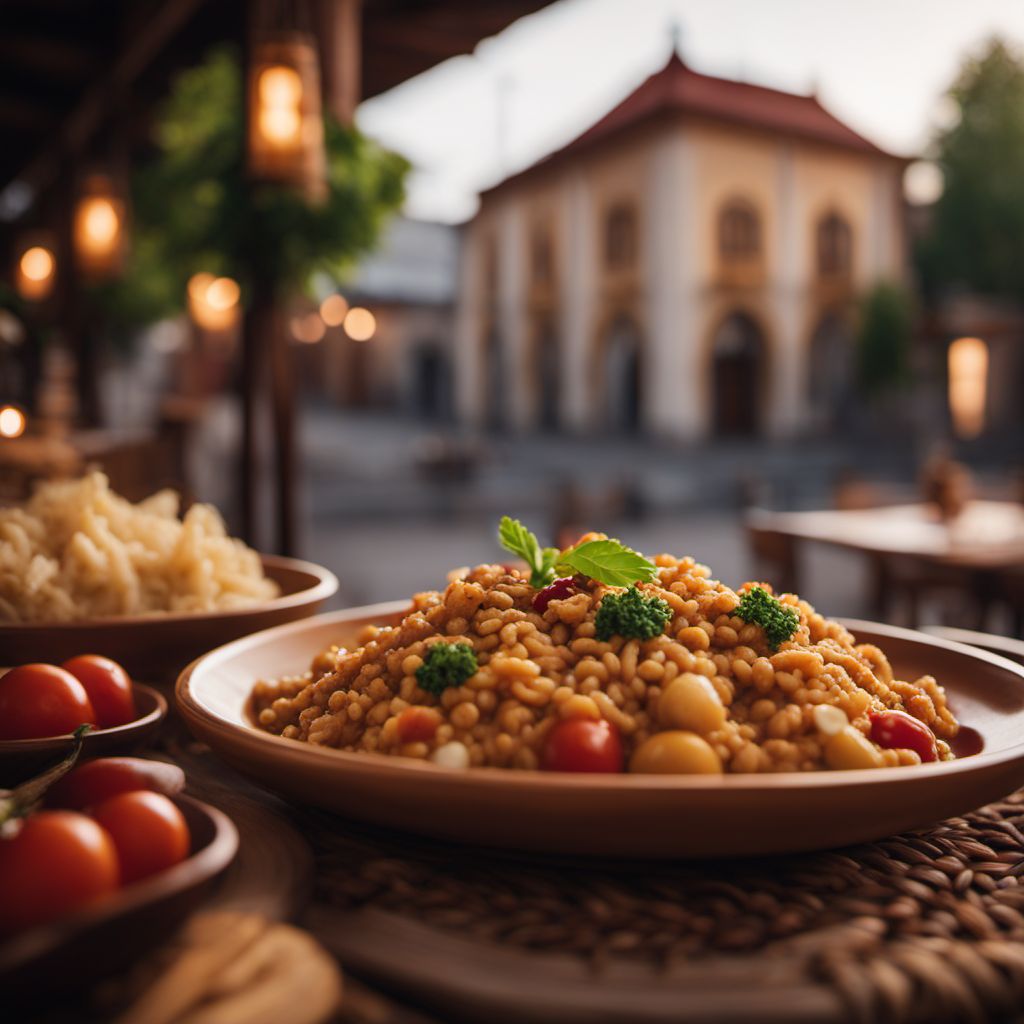
Cuisine
Mordovian cuisine
Mordovian cuisine is heavily influenced by the region's climate and geography. The cuisine is known for its use of grains, potatoes, and root vegetables, as well as its hearty meat dishes. Mordovian cuisine is also known for its use of sour cream and other dairy products, which are often used to add richness and flavor to dishes. The cuisine is typically served with bread, which is a staple of the Mordovian diet.
Typical ingredients
Potatoes, Grains (such as barley and rye), Root vegetables (such as carrots and turnips), Meat (such as pork and beef), Dairy products (such as sour cream and cheese), Mushrooms, Berries (such as lingonberries and cranberries), Herbs (such as dill and parsley), Bread
Presentation and garnishing
Mordovian dishes are typically served in large portions, and are often garnished with fresh herbs or sour cream. Bread is also an important part of the cuisine, and is often served alongside main dishes. Some traditional Mordovian dishes are also served with pickled vegetables, such as cucumbers or cabbage.
Mordovian cuisine is known for its use of sour cream and other dairy products, which are often used to add richness and flavor to dishes. The cuisine is also known for its hearty meat dishes, which are often made with pork or beef. Some traditional Mordovian dishes include koumiss (a fermented milk drink), kulebyaka (a savory pie filled with meat and vegetables), and shangi (a type of dumpling filled with meat or potatoes).
More cuisines from this region...
Tatar cuisine, Yamal cuisine, Chechen cuisine, Chukchi cuisine, Bashkir cuisine
History
Mordovian cuisine has a long history, dating back to the ancient Finno-Ugric tribes that inhabited the region. Over time, the cuisine has been influenced by the Tatars, Russians, and other neighboring cultures. Today, Mordovian cuisine is an important part of the region's cultural heritage, and is celebrated at festivals and other cultural events throughout the year.
Cultural significance
Mordovian cuisine is an important part of the region's cultural heritage, and is celebrated at festivals and other cultural events throughout the year. The cuisine is also known for its use of locally sourced ingredients, which are often grown or raised by small-scale farmers and producers. Mordovian cuisine is a reflection of the region's rural traditions and way of life.
Health benefits and considerations
Mordovian cuisine is generally considered to be healthy, as it is based on whole foods and locally sourced ingredients. However, some dishes may be high in fat or calories, particularly those that are made with meat or dairy products. People with lactose intolerance or other dietary restrictions may need to be cautious when consuming Mordovian cuisine.
Mordovian cuisine recipes Browse all »
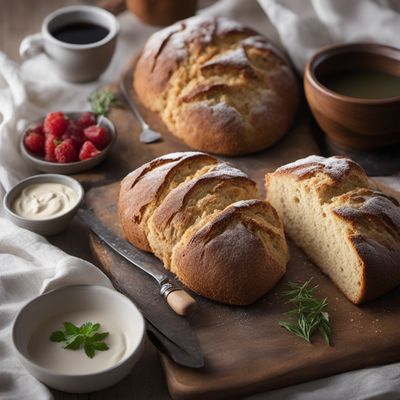
Mordovian Soda Bread Farl
Mordovian Magic: A Twist on Soda Bread Farl
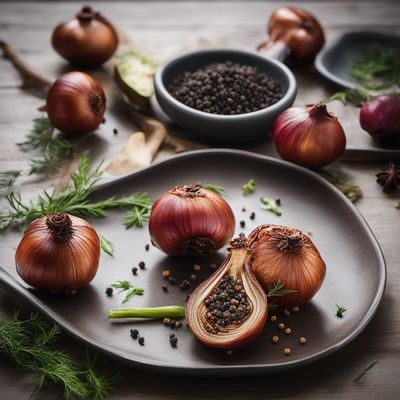
Roasted Onions with Mordovian Twist
Mordovian Onion Delight: Roasted Onions with a Local Flair

Mordovian-style Apple Salad with Wine-Marinated Cheese
Autumn Delight: Mordovian Apple Salad with Wine-Infused Cheese
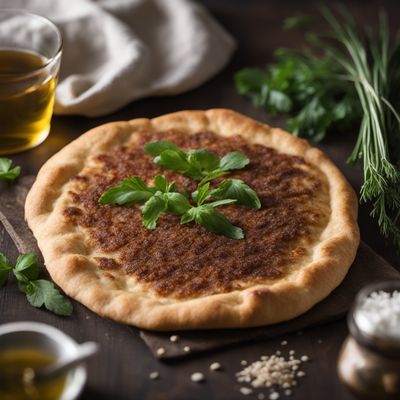
Mordovian-style Crispy Flatbread
Golden Delight: Mordovian-inspired Crispy Flatbread
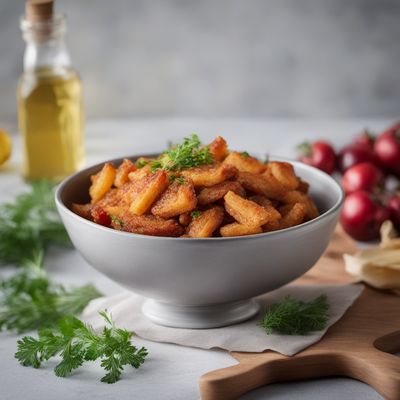
Mordovian Cassatelle
Savory Delights: Mordovian Cassatelle - A Fusion of Italian and Mordovian Flavors

Mordovian Spiced Bread Bites
Savory Mordovian Bread Bites with a Spicy Twist

Mordovian-style Tempura Soba
Crispy Buckwheat Noodles with Mordovian Twist
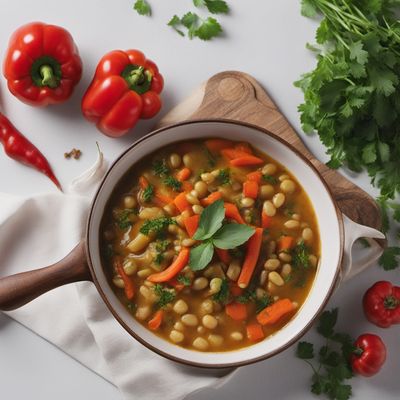
Mordovian-style White Cacholeira
Savory Mordovian Delight: White Cacholeira with a Twist
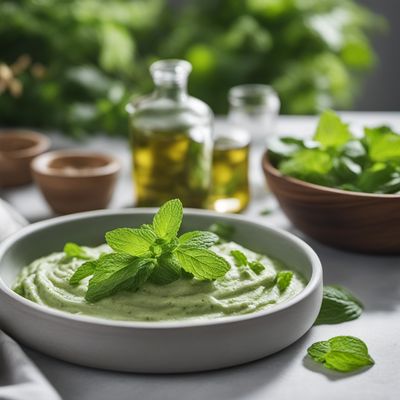
Mint-infused Strascinati with Mordovian Twist
Refreshing Minty Strascinati: A Mordovian Delight
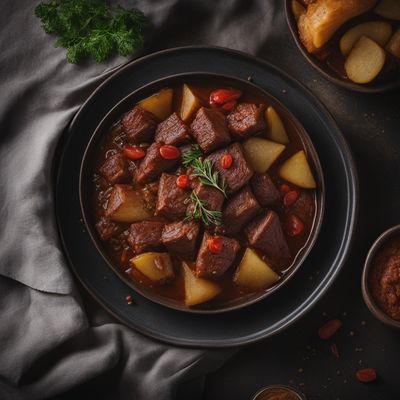
Mordovian Michoteta
Savory Mordovian Delight: Michoteta with a Twist
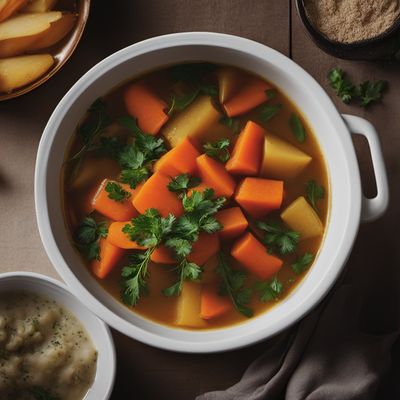
Mordovian Mannish Water
Hearty Mordovian Lamb Stew
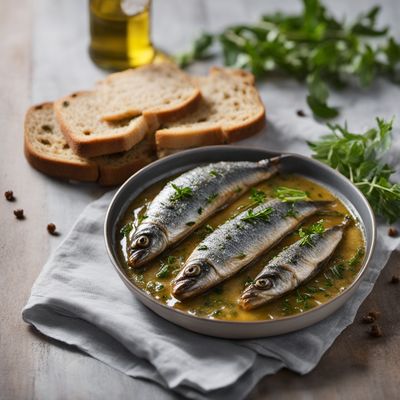
Mordovian-style Marinated Sardines with Oregano and Bread
Flavors of the Sea: Mordovian Sardines Infused with Oregano and Served with Crispy Bread